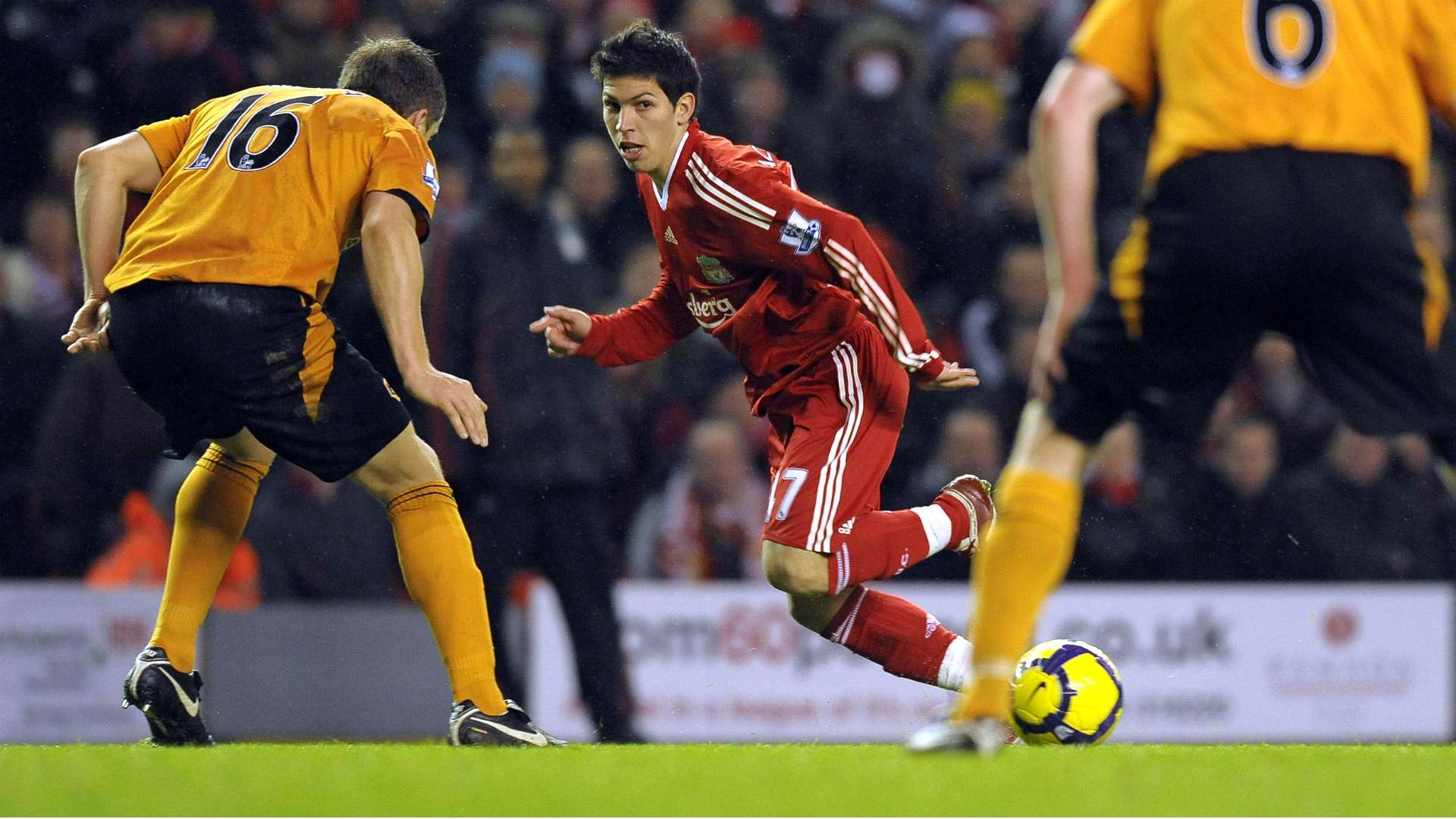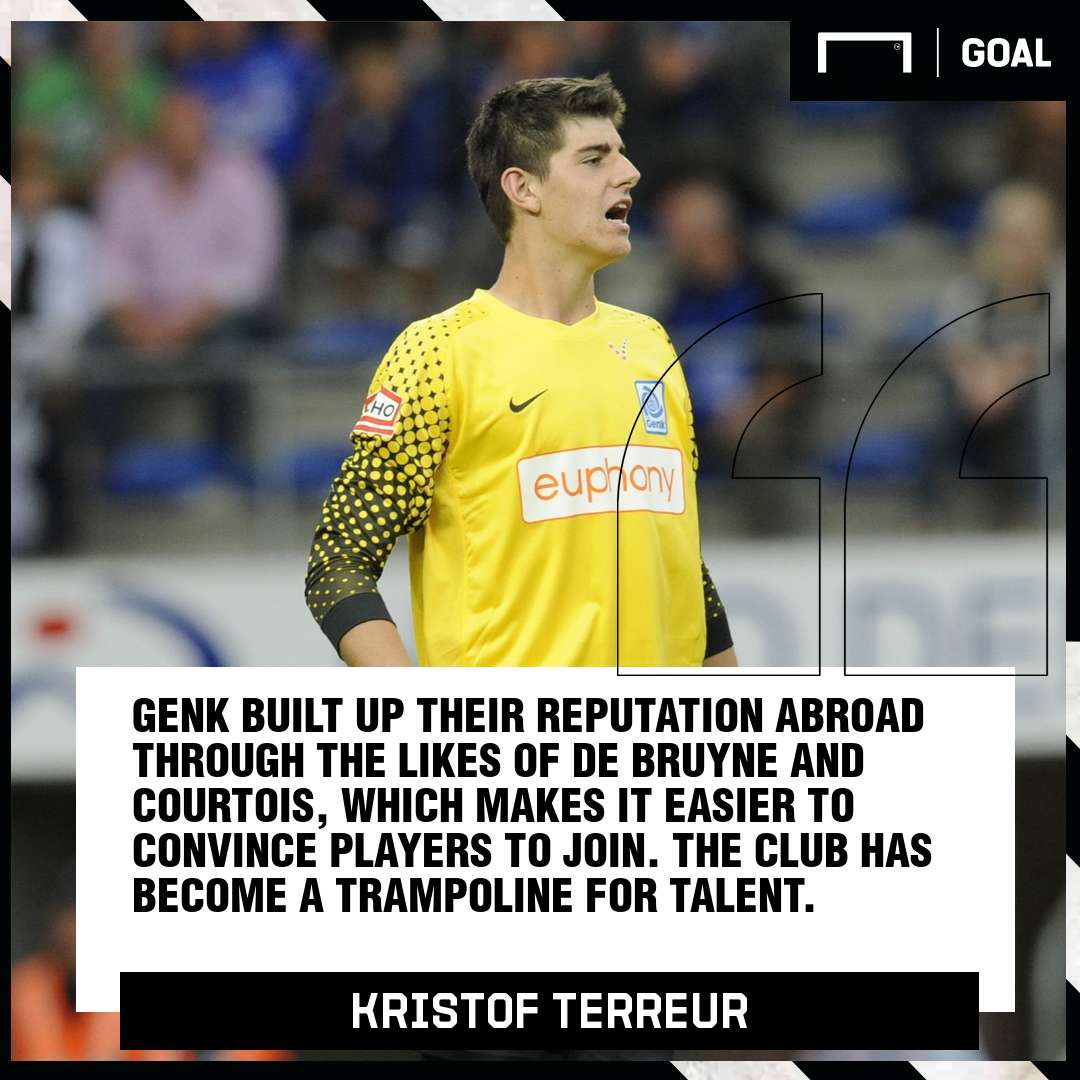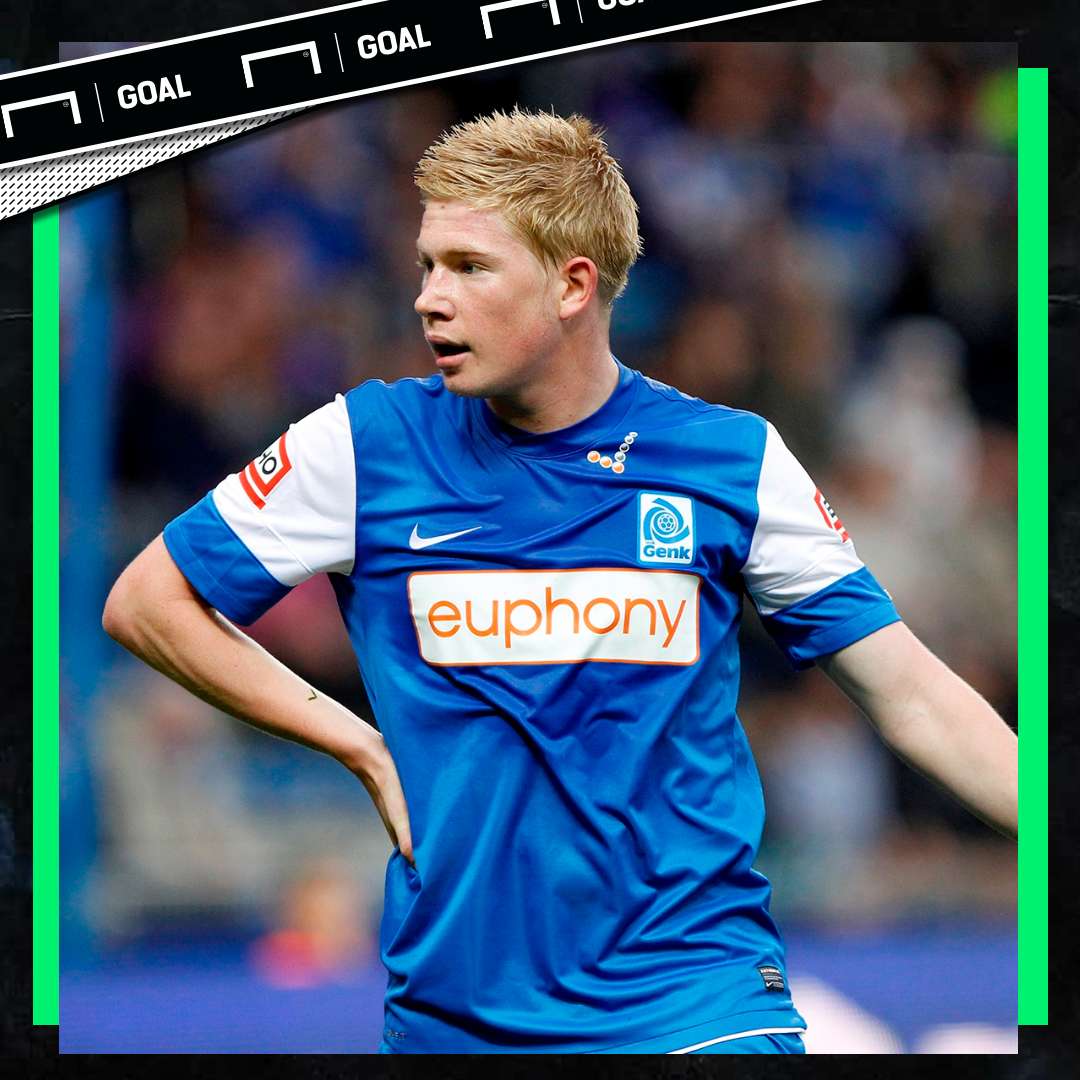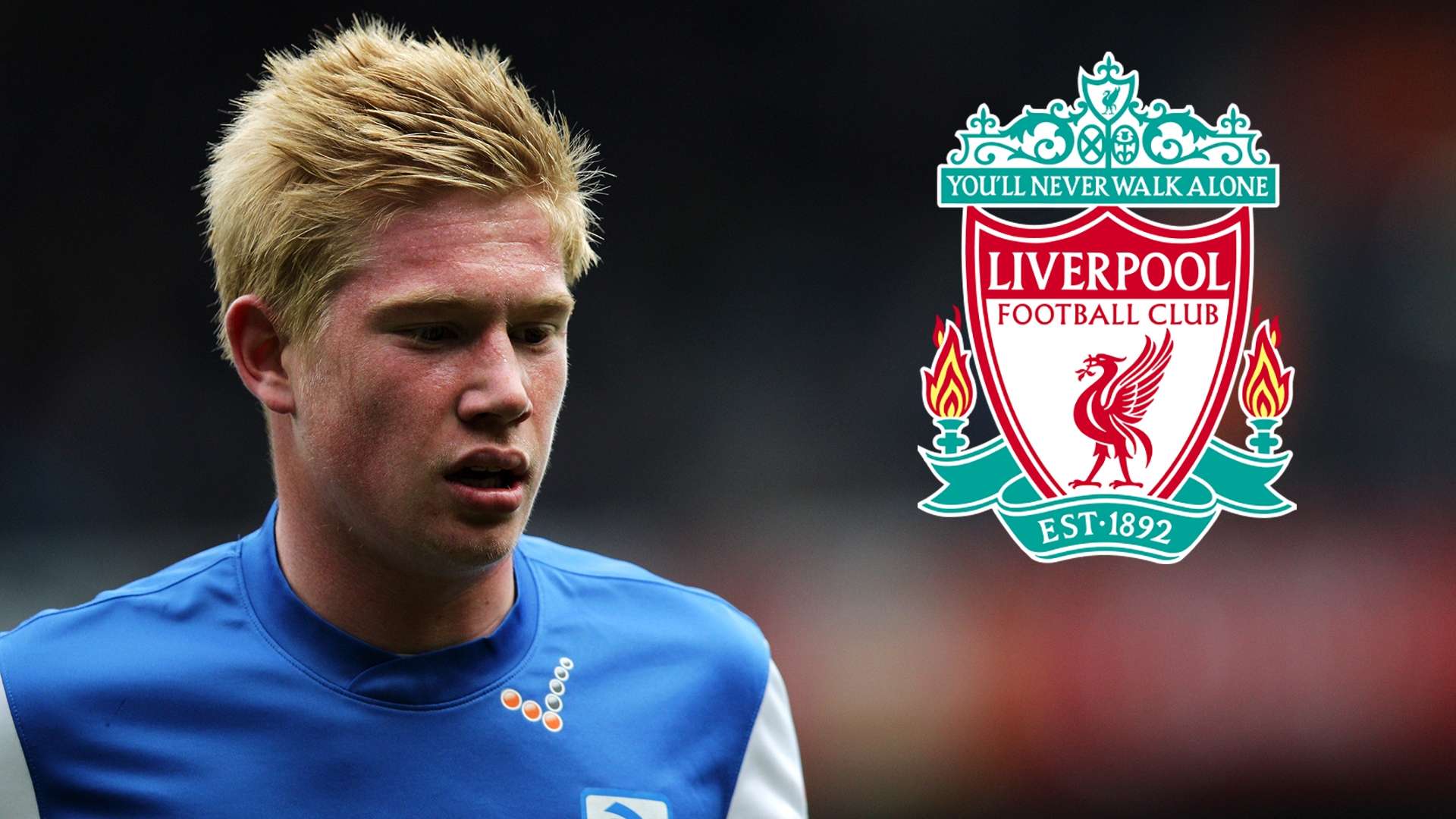Prenton Park, Tranmere. January 2010.
A muddy pitch and a low-key reserve-team game between Liverpool and Manchester City.
On a freezing cold evening, an injury-time equaliser from Danish striker Nikola Saric rescued a 3-3 draw for the Reds.
Decent enough entertainment for the regulars, huddled together for warmth in the main stand. And for the delegation from Belgium sat in the directors' box, too.
That delegation wore the badge of KRC Genk, and included Herman Vermeulen, the club’s technical director, and Roland Janssen, their chief scout. Dirk Degraen, the chief executive, was also in attendance.
Next Match
A few days earlier, Degraen had visited Melwood, meeting with Liverpool boss Rafa Benitez and head scout Eduardo Macia.
News emerged that Liverpool and Genk had agreed a four-year “co-operation” deal which would, in theory, see the clubs work together with regards to scouting, loans and the recruitment of non-EU players.
Degraen was a former agent and had been recommended to Liverpool by Damien Comolli, who was then the sporting director at French club Saint-Etienne but who would later hold the same position at Anfield.
At the time, Degraen explained the benefits of the partnership.
“Liverpool wants to sign young talented players from Africa and South America but because of the British law, it isn’t possible,” he said.
“We can get the players to Belgium and let them develop. It would be a win-win situation for both clubs.
“Also, Liverpool has a very big squad and many players don’t get many minutes. Genk can offer a solution for that if we are offered the players that can make our squad better.”
The idea was that the two clubs’ scouting departments would share information, with Liverpool sending some of their best Under-21 players to Genk on loan.
A nice idea in theory, but not in practice.
Genk’s first target was Dani Pacheco, the Spanish forward who had been tipped for a first-team future at Anfield.
 Getty
Getty
Pacheco, who had made his senior debut a month before that City reserve-team game, rejected the move immediately. Belgium, at that time, was not seen as an attractive option for an ambitious young footballer.
In the end, only one player made the switch. Chris Mavinga, a French defender, spent six months on loan in 2011, making nine appearances as Genk became Belgian champions for only the third time.
The partnership, which sounded so promising in theory, never truly materialised. According to sources, it was quietly ended after little more than 12 months.
But, as Liverpool and Genk prepare to meet in the Champions League on Wednesday night, the story is worth revisiting.
Because, in many ways, it is a tale of what might have been.
Genk, of course, have established a reputation as one of Europe’s best and most prolific talent factories. They find players and they develop players, and they do both things superbly.
Their list of recent success stories is remarkable.
Kevin De Bruyne, Yannick Carrasco, Dennis Praet, Christian Benteke, Steven Defour, Thibaut Courtois and Divock Origi – who could line up against them on Wednesday – all came through the academy at Genk. All have gone on to enjoy stellar careers, making their first club plenty of money in the process.
Others have been found playing elsewhere and brought to Belgium to develop. Sergej Milinkovic-Savic, Leon Bailey and Kalidou Koulibaly all spent time at the Luminus Arena before moving on to bigger clubs in bigger leagues.
 Getty/Goal
Getty/Goal
Degraen, who has since left the club, and Janssen, who now scouts for Manchester United, were key in the recruitment of such players.
Wilfred Ndidi, for example, was spotted by Janssen playing in a youth tournament in Lagos, Nigeria in 2013. Bailey joined on trial as a teenager having spent time in Austria, Slovakia and his native Jamaica previously. Milinkovic-Savic was plucked from Vojvodina as a 19-year-old and is now one of Serie A’s biggest talents.
“Working with the right agents has helped them,” says Kristof Terreur, a journalist with Het Laatste Nieuws who has covered Genk closely. “They built up their reputation abroad through the likes of De Bruyne and Courtois, which makes it easier to convince players to join.
“Technical director Dimi De Conde and head scout Dirk Schoofs work closely together, and they are always looking for specific qualities in players.
"Over the last two seasons they signed, for instance, two talented Colombian defenders and found a player (Junya Ito) in Japan. They tend to look around in Scandinavia a lot too.
“The club has become a trampoline for talent.”
Terreur credits Jos Vaessen as having played a vital role in the development of Genk’s home-grown stars – appropriately enough, the club’s academy now bears the former club president’s name.
“It was around 20 years ago that the philosophy changed,” Terreur says. “Instead of recruiting players in their own province, they sent scouts all over the country and even in Holland.
“Their attacking style of play attracted loads of youngsters.
"De Bruyne, for instance, lived 140 kilometres from Genk which, considering the size of the country, is a big distance. But he decided to join their youth academy at 14 because of the technical style of play. He could have joined Anderlecht or Club Brugge, closer to home, but he specifically chose Genk.”
 Getty/Goal
Getty/Goal
De Bruyne, of course, is the jewel in the Genk crown, the most gifted player to emerge from their club. He is the player to which every other will be compared.
Still, the production line continues. Of the current side, plenty are expected to move to bigger leagues in the coming months and years.
They include Sander Berge, a Norwegian midfielder who is already on the radar of clubs in England and Spain. Danish right-back Joakim Maehle, too, has had offers from the Premier League, while Tanzanian striker Mbwana Samatta and Sweden Under-19 forward Benjamin Nygren are also attracting interest. Ianis Hagi, son of Romanian legend Gheorghe, was signed in July.
Felice Mazzu, who replaced former Coventry defender Philippe Clement as manager in the summer, knows he has a very talented side at his disposal. Genk drew with Napoli in their last Champions League game; clearly, they are no mugs.
Liverpool, of course, can say the same. As European champions and Premier League leaders, Jurgen Klopp’s side have no reason to look at any club with envy right now.
Still, it is interesting to wonder what might have been. De Bruyne joined Chelsea in 2012, two years after Genk and Liverpool had announced their "co-operation deal".
Who knows what might have happened had it not fallen apart – De Bruyne at Anfield? It was closer than you think!


